RBFnet
 RBFnet copied to clipboard
RBFnet copied to clipboard
RBF Network using Theano, climin, and sklearn.
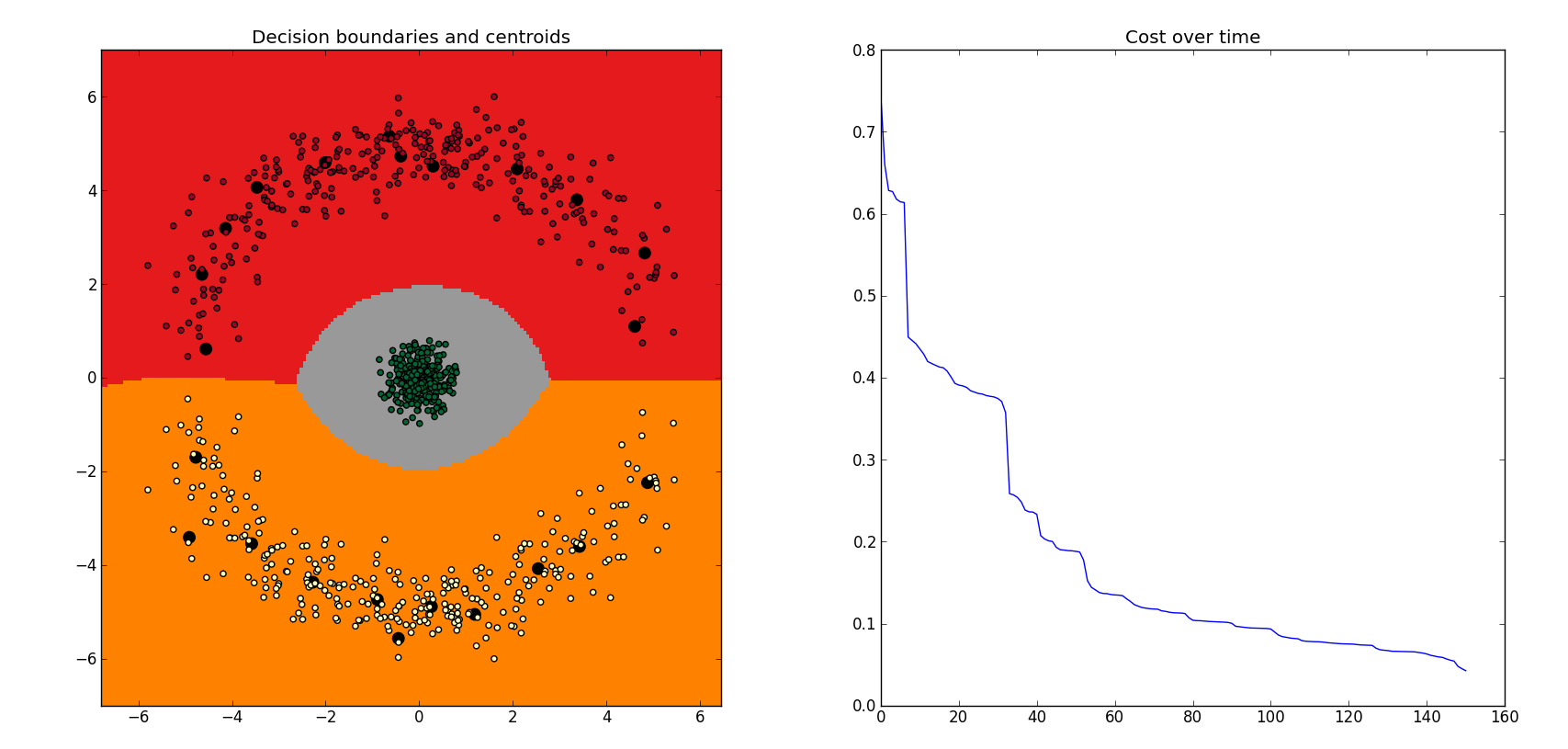 [for more see the Images section below]
[for more see the Images section below]
RBFnet
RBF Network using Theano, climin, and sklearn.
Theano [http://deeplearning.net/software/theano/] and [https://github.com/Theano/Theano] is a python library which makes it easy to do symbolic computation with multidimensional arrays.
Climin [https://climin.readthedocs.org/en/latest/] and [https://github.com/BRML/climin] is a python library for optimization.
Sklearn [http://scikit-learn.org/stable/] and [https://github.com/scikit-learn/scikit-learn] is a python library with a large number of machine learning algorithms already implemented.
This project shows how the three can be used together for developing and training new machine learning algorithms.
Theano
Theano is an incredible library from the perspective of a machine learning researcher. The basic usage pattern is:
-
Write symbolic code in python implementing your algorithm. Usually this is less than 20 lines because of the expressiveness of python and the ease with which multidimensional arrays are handled in Theano.
-
Use Theano's automatic differentiation capabilities to calculate the gradients of the error with respect to model parameters. The gradient is hugely important for optimization, and not having to derive it by hand is a huge time saver and bug killer when it comes to developing new algorithms.
-
Theano compiles your symbolic code to C code, optimizing as much as possible. This is another awesome feature, and I noticed huge speedups using it compared to naive python/numpy code.
-
Pass the compiled functions and gradients to your optimization libraries.
Climin
Climin is a relatively new library for optimization (it's still in version 0.1). It's similar to scipy's optimize. Climin has good implementations of different optimization routines; Nonlinear Conjugate Gradient, Stochastic Gradient Descent, and Limited Memory BFGS are possible for training the RBF net.
When calling Trainer.train(), pass either 'sgd', 'ncg', or 'lbfgs' to choose the optimization routine.
Sklearn
Sklearn is a very widely used machine learning library. In this project, it was used to initialize the centroids for the RBF net, where minibatch k-means is the algorithm used. This can be seen as a form of unsupervised pre-training.
Results
This is what I'm working on right now: getting some results from MNIST. Stay tuned.
Future Development
I've got some interesting things which I'm going to test out with RBF nets, as I think they have more potential than the machine learning community gives them credit for. Stay tuned.
Images

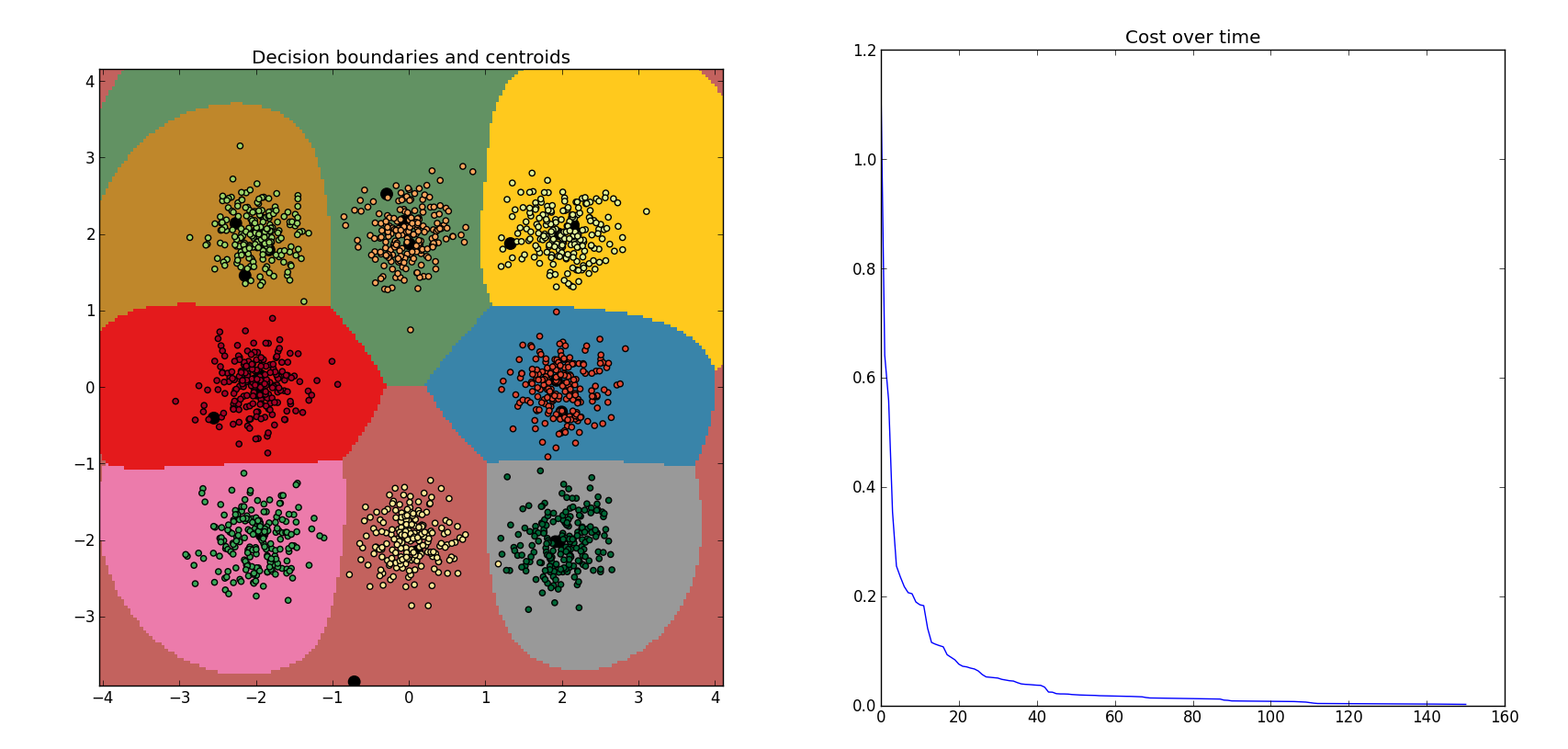
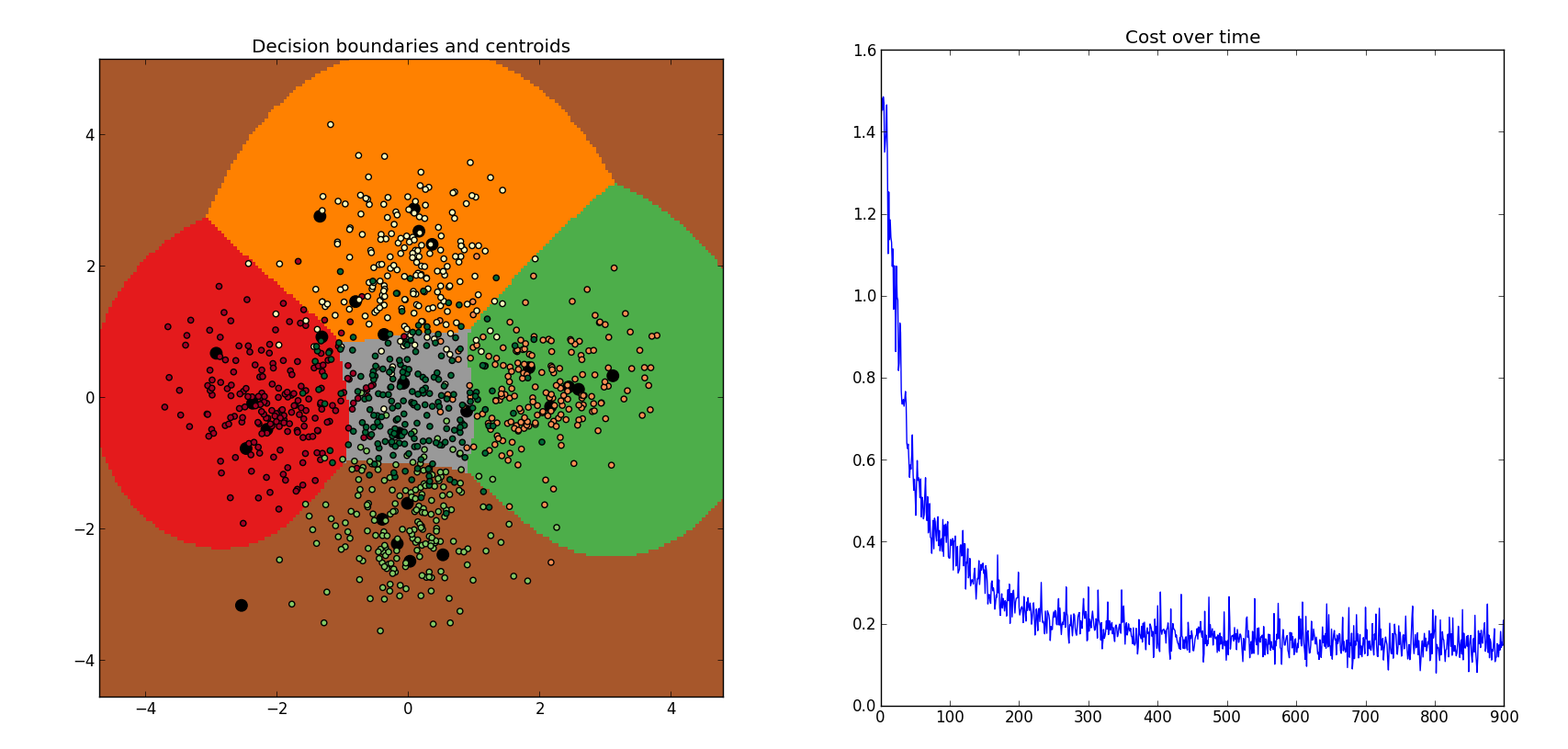
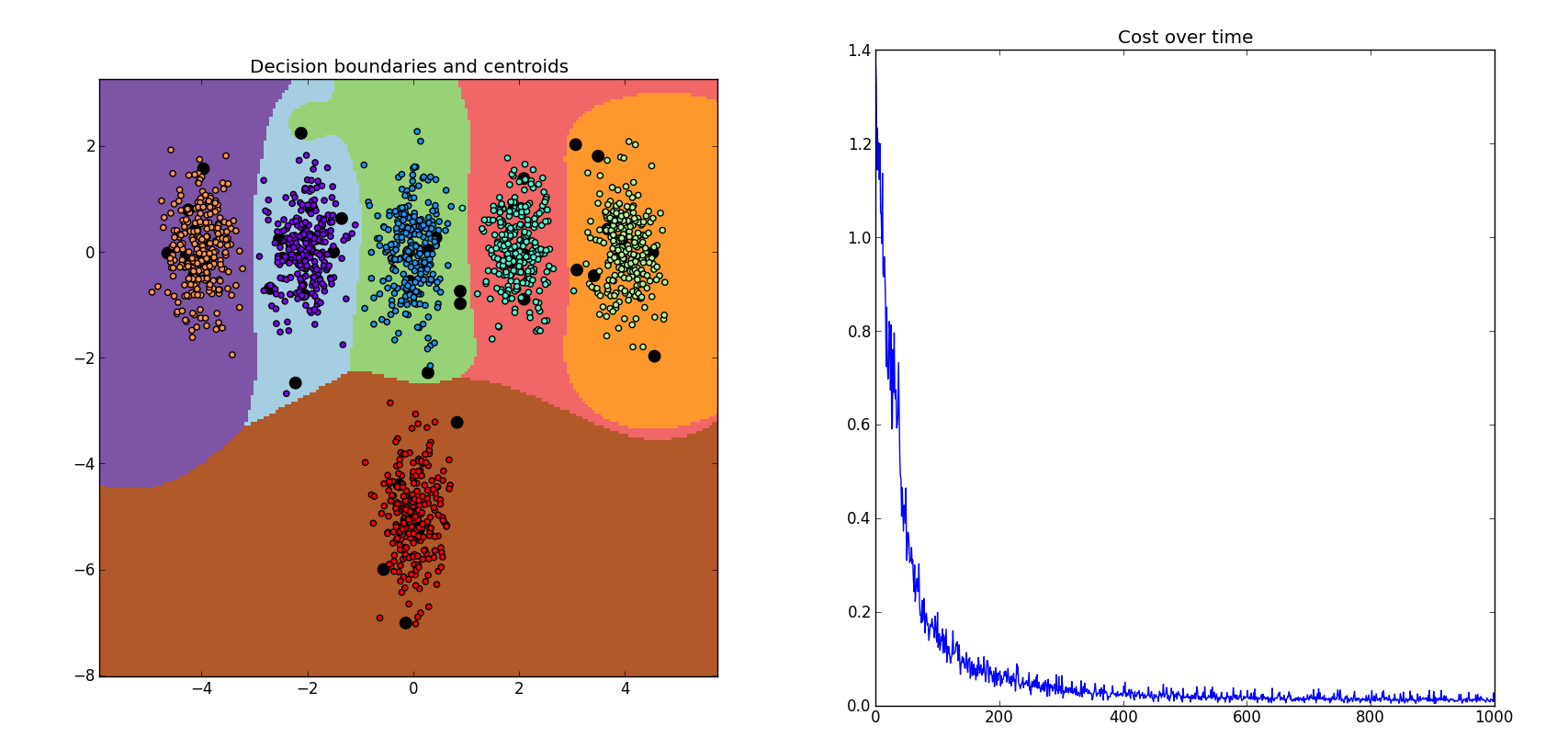
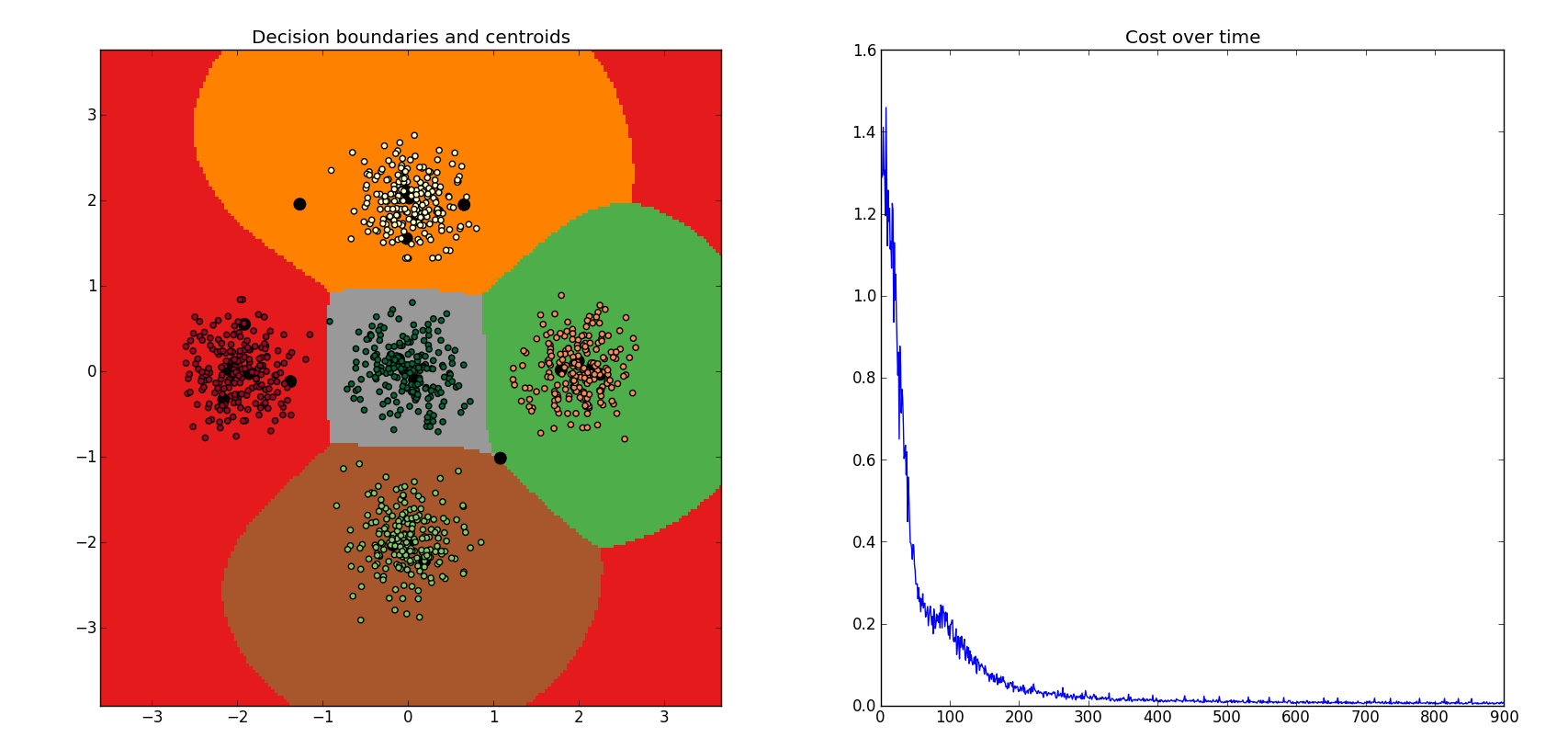
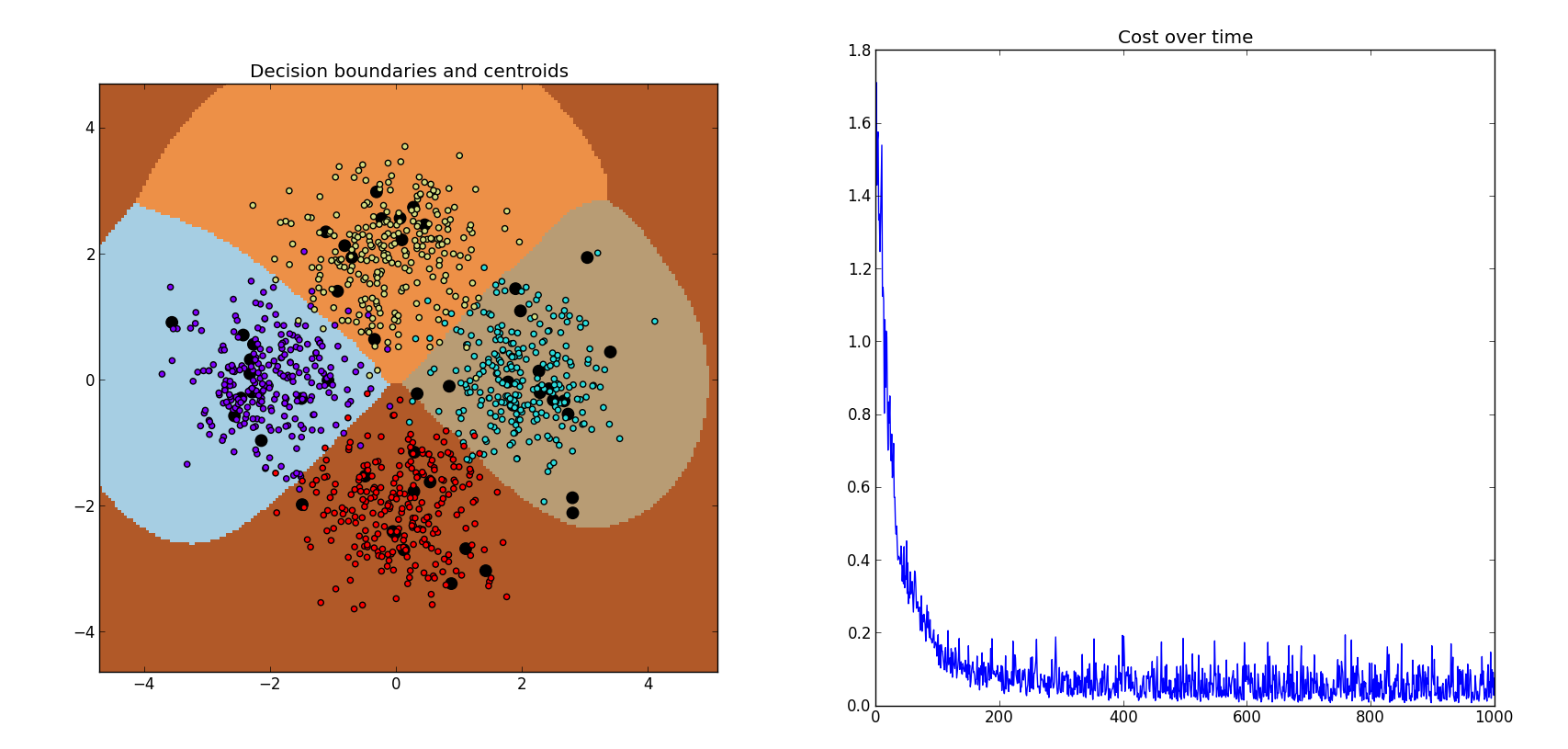
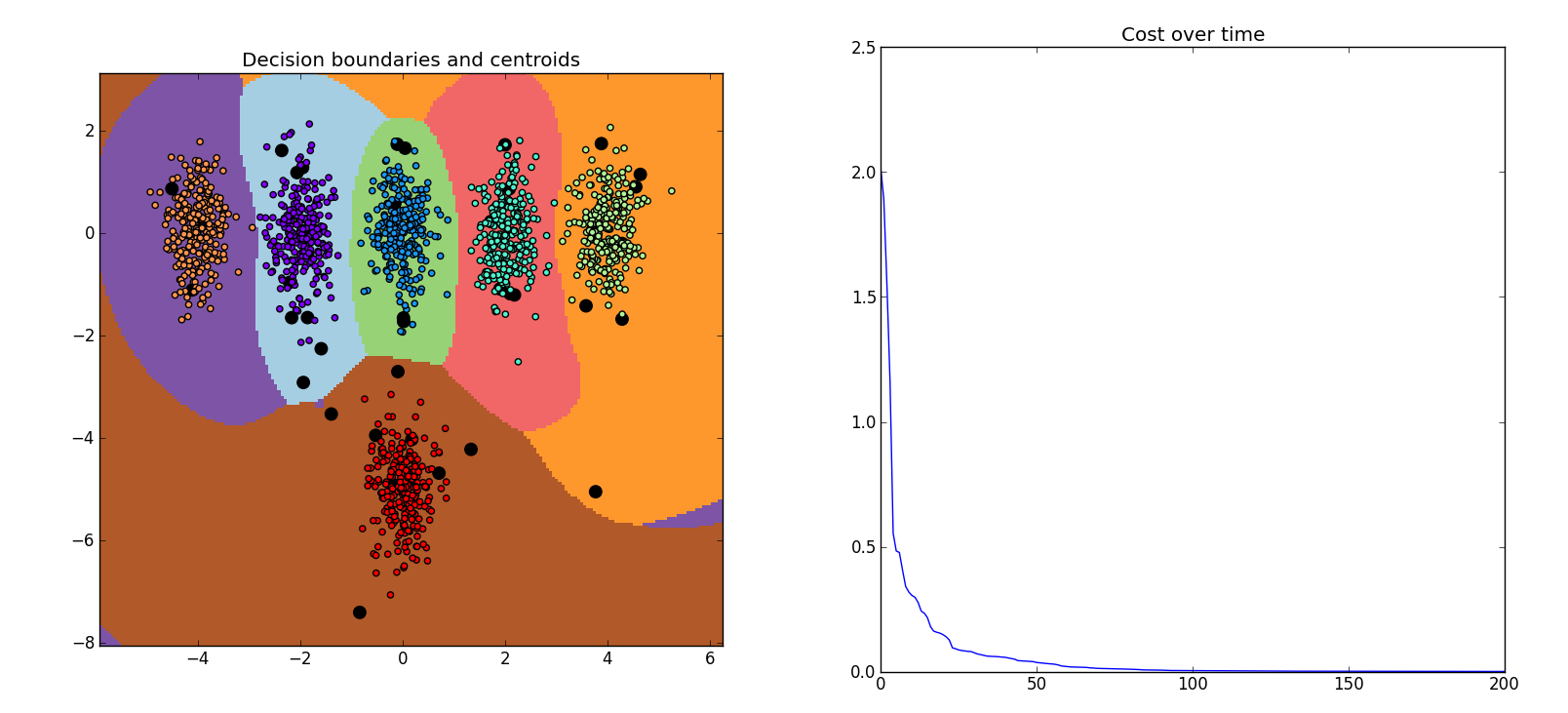 Graphics by Matplotlib.
Graphics by Matplotlib.
Note
I made a change to gd.py in climin so that the optimizer can report cost per minibatch. It doesn't help with optimization at all, but it's something I like to see afterwards to kinow that things were working correctly. If you try to use 'sgd' as an optimizer, make sure to replace the gd.py in your climin installation with the version in this repo.